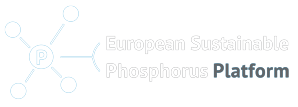The EU’s “Expert Group for Technical Advice on Organic Production” (EGTOP) has confirmed its positive opinion that “recovered struvite” should be authorised in Organic Farming, but now widens this to other recovered precipitated phosphate salts. EGTOP also underlines that the “circular economy should be widely adopted in Organic Production” but with concerns about possible contaminants. EGTOP recommend that for precipitated salts from animal manure, this shall not be of “factory farming” origin. This new EGTOP Opinion thus recommends a wider and simpler inclusion of recovered precipitated phosphate salts into Organic Farming than did the EGTOP 2016 Opinion, which covered only struvite from municipal wastewater. The new Opinion effectively recommends that any recovered phosphate salt corresponding to the criteria of the EU Fertilising Products Regulation 2019/1009 CMC12. However, it is NOT clear to ESPP whether EGTOP recommends (a) that also “derivates” (as defined in CMC12) should be included and (b) that the product must have obtained the CE-Mark (i.e., undergone Conformity Assessment as defined in 2019/1009 Annex IV). ESPP hopes that the European Commission (DG AGRI) will now move rapidly to add recovered precipitated phosphate salts to Annex II of the EU Organic Farming Regulation. ESPP does not understand why recovered “calcined phosphates” are not included in this new EGTOP Opinion, despite they were positively approved by EGTOP in 2016 at the same time and under the same conditions as recovered struvite.
EGTOP’s report on fertilisers (V), apart from recommending approval of recovered struvite and phosphate salts in Organic Farming, also provides various general and specific positions on nutrient recycling in Organic Farming. In discussion of struvite, EGTOP notes that if soils contain stores of phosphorus, it is preferable to increase soil P availability rather than adding P in fertiliser, but also notes (in discussion of “bio-waste”) that there is a lack of sources of phosphorus and nitrogen for Organic Farming. EGTOP underlines however that recycled materials may include contaminants “such as microplastics, heavy metals, veterinary drugs or pesticides”. In detail:
Bio-waste: EGTOP recommends modifying current wording of the Organic Farming Regulation (2021/1165) Annex II which allows use of “Composted or fermented mixture of household waste” to become conform with the Waste Framework vocabulary and read “Composted or fermented bio-waste”. "This effectively widens to organic wastes from gardens and parks and food wastes from restaurants, caterers, retailers (as well as households) and “comparable waste from food processing plants”. The term “bio-waste” is already used in the EU Fertilising Products Regulation (CMCs 3 compost and 5 digestate).
Bone char: EGTOP recommends that “bone charcoal” (Animal Bone Char ABC from Hungary) be NOT authorised for Organic Farming. EGTOP note concerns about levels of PAH in this material, underline that bone meal is already authorised in Organic Farming and conclude “no clear advantage of using bone charcoal, but a certain (not precisely quantifiable) risk” and that “non-pyrolysed bone meal and other permitted alternative P-fertilisers should be used in preference”. EGTOP note that nitrogen is lost in pyrolysing bone meal, PAH are formed and that there are no concerns about pathogens if bone meal is used correctly, meaning that pyrolysis is not useful.
Phosphogypsum: EGTOP recommends that phosphogypsum be NOT authorised as a liming material in Organic Farming. EGTOP recognises the environmental interest of phosphogypsum use in Finland (locally available from phosphate rock processing, alternative minerals must be imported) but considers that phosphogypsum does not “strictly” meet the Organic definition of “plant, animal, microbial or mineral origin” because sulphuric acid is used in its production. EGTOP considers that use of industrial by-products can support the circular economy, but that phosphogypsum should be excluded because it is a by-product of mineral fertiliser production, and these fertilisers are not authorised in Organic Farming.
Iron phosphates: EGTOP recommended that ferric pyrophosphate be authorised for use in Organic Farming, as a plant production substance, not as a fertiliser. Ferric phosphate (iron (III) phosphate) is already authorised as a plant production product (Annex I, part 2). Both ferric phosphate and ferric pyrophosphate are used against slugs and snails.
EGTOP “Final Report on Plant Protection (VII) and Fertilisers (V)”, adopted 8-10 June 2022 here.
List of EGTOP committee members here.
